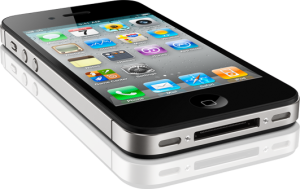Summary. Next week, Apple is anticipated to make a major announcement regarding their cloud initiative. Whatever they announce will likely put into motion a ripple effect of other companies like Google and Microsoft gearing up their own cloud offering.
Vertical Solutions. Apple, Google, and Microsoft now offer a vertical market through bundling their smart phone OS with apps, content, and cloud services to coordinate and synchronize all your contacts, schedule, documents, email, and more. So, it’s likely that consumers will think in terms of bundling hardware with the provider of the OS to offer their cloud solution which is likely to result in the most hassle free operation.
Consumer Advice. I rarely cross-post content, but this is something worth highlighting from a discussion on ShopSquad.com about choosing the right smart phone. It’s a response I wrote to someone asking for advice on what’s the right smart phone.
“I’d have to say it really depends on what your current and long-term thinking is.
For people who like having a company offering vertical market support (software, hardware, service) for their phone, the iPhone is a good option. [Amazon.com: apple iPhone 4: Electronics]
You can see the general growth trend for iPhone, and it’s inevitable that Apple will continue to innovate. They were the first to market, and will likely always be a few steps ahead of the competition. That said, it seems like the proliferation of Android phones will make them the better value on the market when considering power and cost. [Amazon.com: android phone: Electronics]
Your decision process should include many factors beyond the phone hardware. I suggest people consider their provider for cloud services as well. Apple is about to announce something big next week.
So, once the dust settles, compare where Google was, is, and will be with their cloud offering. Then consider where Apple was, is, and will be with their cloud offering.
The phones are just tools to get to your suff and apps that are in the cloud. So, pick the best cloud solution with the best scaleability (iPhone, iPad, iMac versus Android phone, tablet, Chrome OS notebook, and desktop).
Android or Apple iOS for Smart Phone and Tablet-iPad Devices. A common question when considering what smart phone to purchase is that of what operating system the phone should have. Before considering what physical hardware to buy, may people look at the broader issue of what company to invest their time (and data) into. Currently there is the Apple iOS, the Android platform, and Windows Phone mobile OS. Here’s some advice from Greg Johnson on this topic:
“An Android tablet is worth considering. One thing to keep in mind when comparing products is that, over time, they are all improving in speed, storage, program availability, battery life, and features.
So, that’s a constant. At any moment in time, the iPad may look better than the best Android tablet. In a few months, then the Android tablet might look better than the iPad. It’s like watching stock values go up and down from one day to the next.
So, as a good investor, rather than looking at a moment in time, consider the general growth trend and compare that to your needs and interests.
Many people, when investing, don’t look so closely at where the stock happens to be on a given day, they really research the company instead. You may decide that the Android has a lot to offer, but that as a company, Apple can offer you a better more contiguous support experience.
The market is really in flux right now. Many big players are about to announce their next big cloud computing initiatives (including Apple next week). Once that happens, depending on what’s available in the cloud, it shouldn’t really matter what hardware or OS you are on, when considering functionality. So, then you start looking at the hardware capabilities, design, and the company behind the product you use.
One thing I’d recommend is getting a complete hardware, software, and cloud package. For example, if you go with iPad, then try to use the Apple software and Apple cloud solution. Or, if you go with Android, consider using the Google apps and cloud solution. This approach generally results in the fewest problems, and easiest user experience.” ~ Greg Johnson [source]
